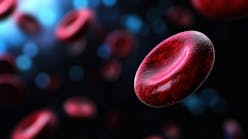Researchers at the National Institutes of Health observed rapid and distinct immune system changes in a small study of people who switched to a vegan or a ketogenic (also called keto) diet.
Scientists closely monitored various biological responses of people sequentially eating vegan and keto diets for two weeks, in random order. They found that the vegan diet prompted responses linked to innate immunity—the body’s non-specific first line of defense against pathogens—while the keto diet prompted responses associated with adaptive immunity—pathogen-specific immunity built through exposures in daily life and vaccination. Metabolic changes and shifts in the participants’ microbiomes—communities of bacteria living in the gut—were also observed. More research is needed to determine if these changes are beneficial or detrimental and what effect they could have on nutritional interventions for diseases such as cancer or inflammatory conditions.
The study was conducted by researchers from the NIH’s National Institute of Allergy and Infectious Diseases (NIAID) and National Institute of Diabetes and Digestive and Kidney Diseases (NIDDK) at the Metabolic Clinical Research Unit in the NIH Clinical Center. The 20 participants were diverse with respect to ethnicity, race, gender, body mass index (BMI), and age. Each person ate as much as desired of one diet (vegan or keto) for two weeks, followed by as much as desired of the other diet for two weeks. People on the vegan diet, which contained about 10% fat and 75% carbohydrates, chose to consume fewer calories than those on the keto diet, which contained about 76% fat and 10% carbohydrates. Throughout the study period, blood, urine, and stool were collected for analysis. The effects of the diets were examined using a “multi-omics” approach that analyzed multiple data sets to assess the body’s biochemical, cellular, metabolic, and immune responses, as well as changes to the microbiome. Participants remained on site for the entire month-long study, allowing for careful control of the dietary interventions.
Switching exclusively to the study diets caused notable changes in all participants. The vegan diet significantly impacted pathways linked to the innate immune system, including antiviral responses. On the other hand, the keto diet led to significant increases in biochemical and cellular processes linked to adaptive immunity, such as pathways associated with T and B cells. The keto diet affected levels of more proteins in the blood plasma than the vegan diet, as well as proteins from a wider range of tissues, such as the blood, brain and bone marrow. The vegan diet promoted more red blood cell-linked pathways, including those involved in heme metabolism, which could be due to the higher iron content of this diet. Additionally, both diets produced changes in the microbiomes of the participants, causing shifts in the abundance of gut bacterial species that previously had been linked to the diets. The keto diet was associated with changes in amino acid metabolism—an increase in human metabolic pathways for the production and degradation of amino acids and a reduction in microbial pathways for these processes—which might reflect the higher amounts of protein consumed by people on this diet.





